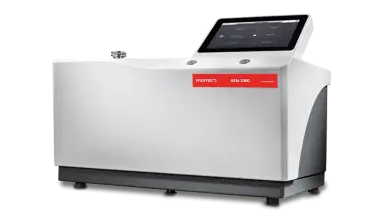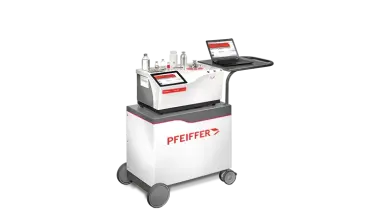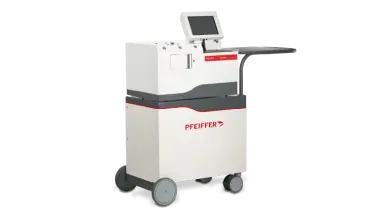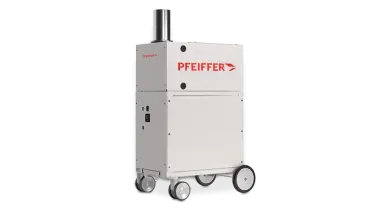Customized Leak Detection Solutions
For special leak testing requirements
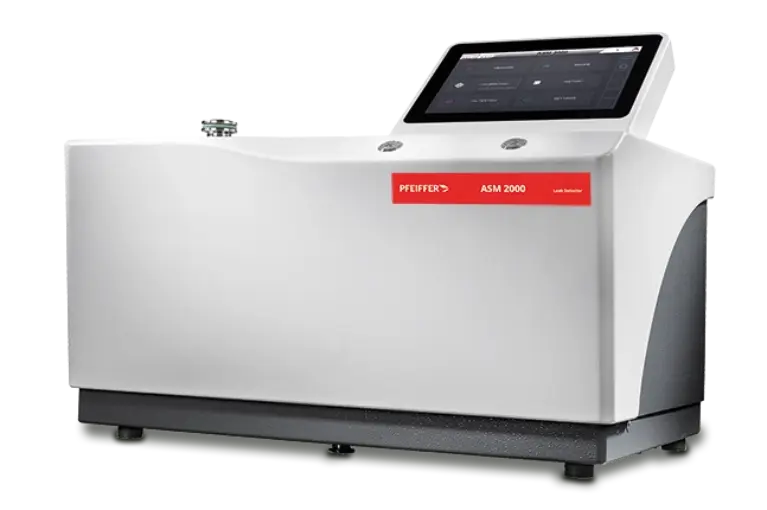
We offer tailor-made leak detection solutions for pharma and container closure integrity testing (CCIT), along with manual or integrated leak test modules applicable across various markets.
Test methods
For your leak test project, you can choose from a wide range of test methods:
- Tracer gas methods: helium, hydrogen
- Optical emission spectroscopy (OES)
- Residual gas analysis (RGA)
- Air-based testing: Micro-Flow, Mass Extraction
Benefits
- Project-based and tailor-made solutions
- Full range of test methods and parameters
- Pressurization of test object at various pressure levels
- Automated process including tracer gas filling
- Easy integration into your production lines
- Modular approach for adaption to specific requirements
- Secure supply chain and decades of experience in leak detection
Suitable applications
- Hydrogen economy
- Automotive
- HVAC-R
- Medical devices
- and many more
Leak testing solutions for demanding applications
Highly sensitive and fast for demanding applications
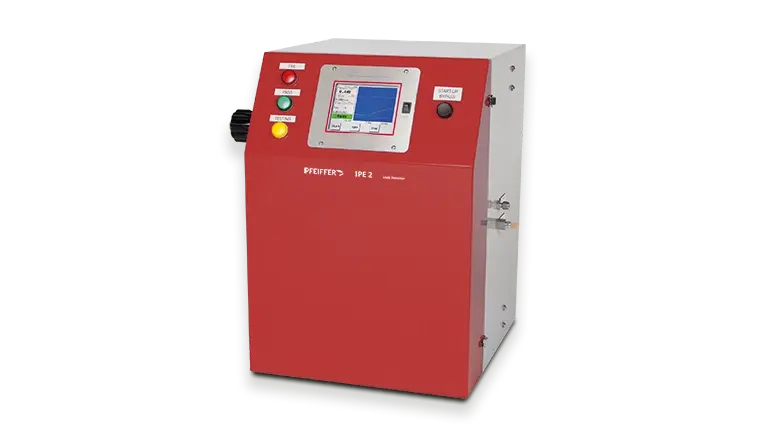
Benefits IPE2 and IPE2-HP
- High pressure valves and fittings for demanding applications, ensuring robustness
- Dual channel option for faster through put, saving time
- Dual channel can combine vacuum and pressure testing, providing flexibility
- Digital and analog I/O interface via Ethernet or serial interface for each test channel
Suitable applications
- Radiators
- Pipings
- Housings
Leak testing solutions for pharma and CCIT
Our portfolio offers specialized equipment for the pharmaceutical and medical industries. Utilizing three distinct technologies, our leak testing and Container Closure Integrity Testing (CCIT) solutions cater to a broad spectrum of applications.
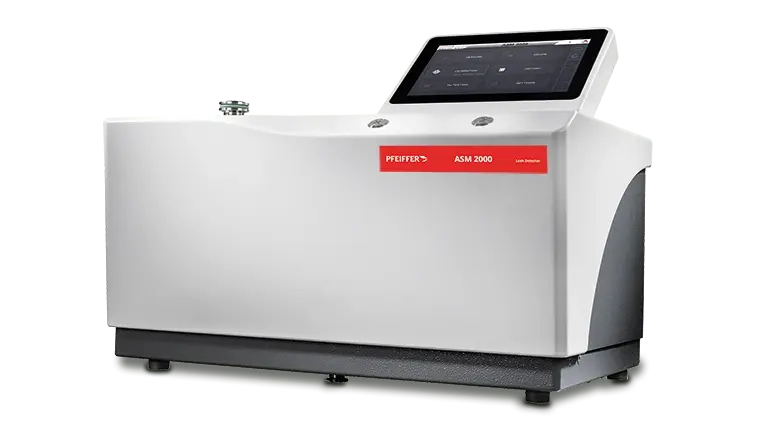
ASM 2000
Turnkey solution for high sensitivityOur ASM 2000 integrity tester for helium mass spectrometry is a comprehensive solution that is fully tailored to the needs of pharmaceutical customers.
Equipped with a helium mass spectrometer leak detector, the ASM 2000 also includes helium handling and charging modules. It can be customized with fixtures specific to the containers being tested. The instrument is calibrated against NIST2-traceable standard leaks.
Highlights ASM 2000
Dependable. Fast. Sensitive.
The ASM 2000 offers high helium pumping speed, an integrated automatic helium charging module, and optimized internal volumes. These features ensure high-performance measurements on helium-filled sealed containers and open sub-assemblies.
The ASM 2000 supports very high throughput, ensuring accuracy and reproducibility of measurement data while allowing ultra-fast cycle times.
Advanced software
The software features intuitive menus that are easy to navigate. User log-in is required to operate the equipment, with four access levels available: operator, advanced user, maintenance, and administrator.
Test recipes can be managed for each part format. At the end of the test sequence, results are clearly displayed, and PDF test and calibration certificates are automatically generated at batch closure.
Benefits ASM 2000
- High sensitivity measurements essential for design and validation studies of new containers
- Turnkey solution including high-performance helium leak detector, helium charging module and customized tooling
- User-friendly interface
- Fast and fully-automatic test sequence to guarantee high repeatability tests
- Data storage and traceability
- Sniffer mode to identify the source of leaks
Suitable applications
Pharmaceutical industry: syringes, blisters, vials
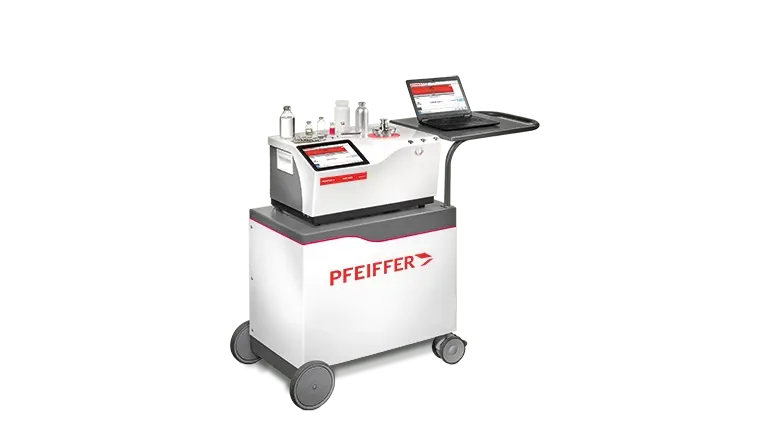
AMI 1000
Dedicated to the pharmaceutical industryWith the AMI 1000, products can be sampled directly from the production line and loaded into the test chamber without any specific conditioning. At the end of the test sequence, the result is clearly displayed, and a PDF report is automatically generated at batch closure. Full automation of the test cycle, including loading and unloading of samples, can be easily implemented for in-line tests.
AMI 1000 equipment has been qualified by leading pharmaceutical companies for in-process control (IPC) leak testing of blister packages. Our software is CFR21 part 11 compliant.
Highlights AMI 1000
Deterministic test method
With no operator intervention required, measurement data are completely objective. High accuracy measurements are achieved through a calibration-validation sequence using certified calibrated leaks.
Large detection range
Various detection methods can be combined to cover the entire detection range. Massive leak and fine leak tests are performed within a single test sequence, eliminating the need for additional gross leakage tests (e.g., blue dye ingress).
High sensitivity and high throughput
Combining high sensitivity tests with high throughput enables trend analysis to early identify manufacturing issues. In high sensitivity mode, optical emission spectroscopy (O.E.S) can detect 0.2 μm defect sizes on glass containers, corresponding to the sterility barrier defined as the Maximum Allowable Leakage Limit (MALL) in the USP4 <1207> guidelines.
Benefits AMI 1000
- Improves sensitivity, capacity and reliability of your integrity tests
- Wide detection range, can replace gross leak and helium test
- Boosts manufacturing productivity featuring equipment that is easy to use and prime
- Reduced non-quality costs thanks to advanced process monitoring and feedback control
- Fast return on investment
Suitable applications
Pharmaceutical industry: blisters, syringes and vials, intravenous therapy (IV) bags, plastic bottles
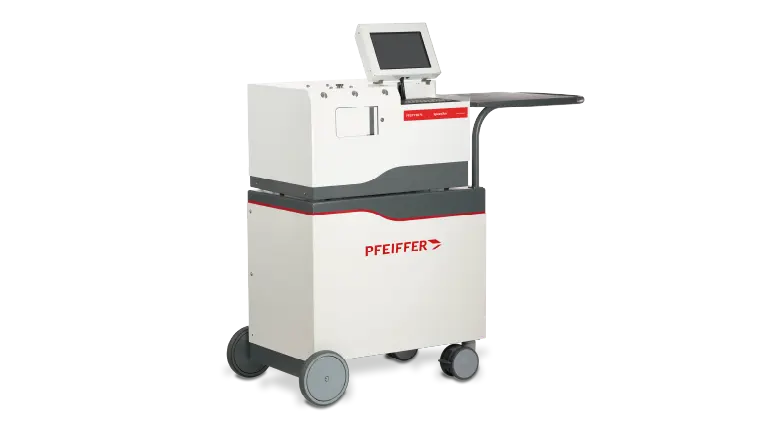
SpeedAir 3050
Enhancing pharmaceutical product safetyThe SpeedAir 3050 is your all-in-one solution for nonporous pharmaceutical applications. Whether your products are flexible or rigid, liquid or solid, the SpeedAir 3050 can swiftly and accurately test them all.
With testing times as short as 30-45 seconds, it delivers results you can rely on, ensuring the integrity of your pharmaceutical containers.
Highlights SpeedAir 3050
Unmatched sensitivity for liquid products
When it comes to liquid products, the SpeedAir 3050 stands out as the most sensitive air-based technology available. You can rely on its results for their repeatability and reliability, significantly reducing the risk of false negatives and positives.
Global NDT on the container
Unlike alternative methods that focus on specific areas or access points, the SpeedAir 3050 provides a comprehensive global non-destructive testing (NDT) approach for your containers. It adheres to ASTM3 Standard F3287-17, demonstrating the ability to detect even the tiniest defects using an air-based technology.
Regulatory compliance assured
The SpeedAir 3050 is fully compliant with industry standards. It utilizes the USP4 <1207> recognized and deterministic Mass Extraction technology and operates with FDA5 21 CFR Part 115 compliant software, ensuring your testing processes meet the highest regulatory standards.
Benefits SpeedAir 3050
- High sensitivity for reliable results
- Covers a wide range of containers
- USP4 <1207> recognized test method
- Non-destructive testing (NDT)
- Fast cycle times compared to competing air technologies
Suitable applications
Pharmaceutical products: ampoules, autoinjectors, bottles, cartridges, flexible bags (IV bags, pouches, etc.), syringes, vials and more.
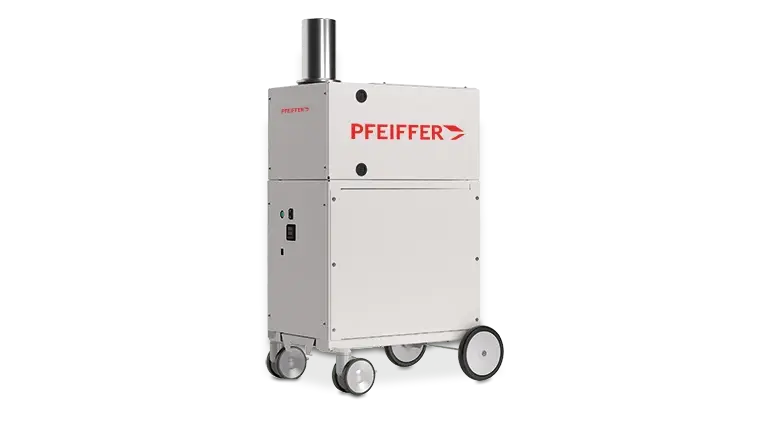
Dry Chiller Module
Mastering integrity under cold storage conditionsThe Dry Chiller Module is a versatile addition to both new and existing leak detection systems.
Serving as an external cooling component, it is compatible with the ASM 2000 for helium pre-filled containers and the AMI 1000 without any sample preparation, utilizing naturally present gas.
Highlights Dry Chiller Module
This module sets new benchmarks in delivering reliable data for testing container closure integrity at low temperatures. Customers benefit from real-time results of temperature and leak rate, optimizing your process without wasting cycle time.
The Dry Chiller Module is designed to prove that the container closure system maintains integrity at deep cold storage temperatures, either at -80°C (-112°F) or even lower. It ensures the quality of substances requiring cold storage conditions, particularly in medical and pharmaceutical environments.
Its flexibility ensures that the Dry Chiller Module can be integrated seamlessly into existing equipment.
Benefits Dry Chiller Module
- Fast cool down and heat up
- Complete control over temperature profile
- Continuous leak rate measurement
